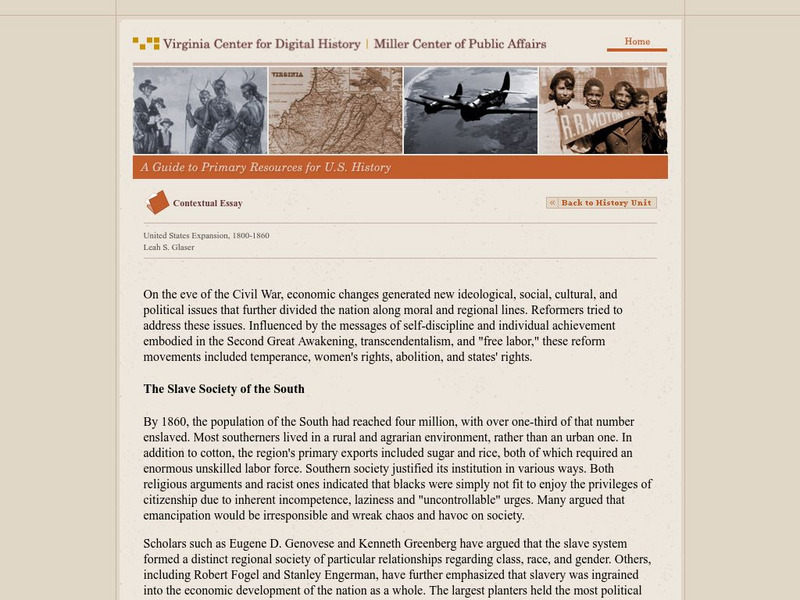Annenberg Foundation
Annenberg Learner: Primary Sources: The Lowell System
An hour-long professional development video on teaching how the Lowell System was a departure from traditional labor practices. Features experienced classroom teachers. Materials and a complete lesson plan are also provided.
Other
Modern World History: Effects of the Industrial Revolution
In this textbook unit, students learn about working and living conditions during the Industrial Revolution, the growth of cities, public health issues that emerged, child labor, the impact of factory work on families and on women, the...
University of Virginia
Virginia Center for Digital History: United States Expansion, 1800 1860
An essay that looks at issues affecting Americans leading up to the Civil War. These included economic changes that led to new ideological, social, cultural, and political issues that further divided the nation along moral and regional...
Other
Lincoln Bicentennial Teacher Network: Northern Factory Workers [Pdf]
An information page on the rise of factory labor as the Industrial Revolution took hold in the North.
Victorian Web
Brown University: Victorian Web: Child Labor
Looks at child labor in industrialized England during Victorian times. Links are provided throughout the article for additional information on related subjects.
Victorian Web
Brown University: Victorian Web: Life of the Industrial Worker in 19th Century
The Victorian Web provides a report to British Parliament submitted in 1833 by a medical observer on how work in textile factories affected the physical health of the laborers. Also includes essays from a factory owner's point of view...
PBS
Pbs: American Experience: The Time of the Lincolns: Wage Slavery
A comparison of factory labor in the North to slave labor in the South. Southerners used the situation of factory workers making low wages in order to justify their own use of slave labor.





![Lincoln Bicentennial Teacher Network: Northern Factory Workers [Pdf] Handout Lincoln Bicentennial Teacher Network: Northern Factory Workers [Pdf] Handout](https://d15y2dacu3jp90.cloudfront.net/images/attachment_defaults/resource/large/FPO-knovation.png)


